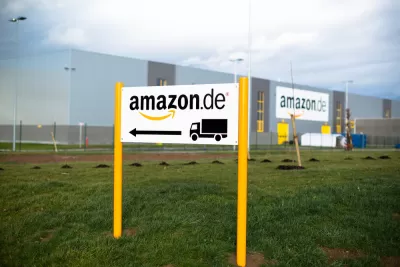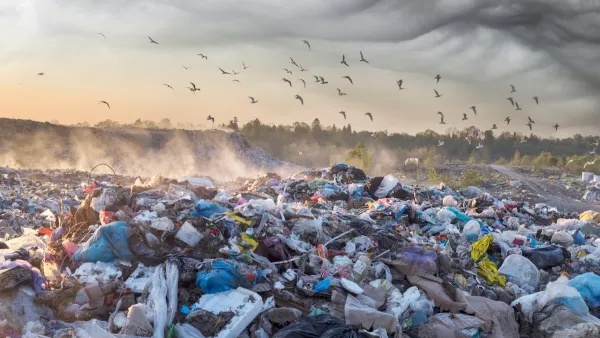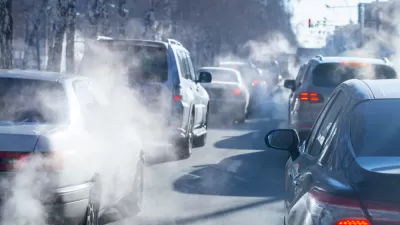A new study from University of Michigan researchers tallies, and then compares, the greenhouse gas emissions from different sectors of the U.S. economy.

"Transportation isn’t the only sector that contributes to greenhouse gas emissions in our world, but it’s a big chunk, and it’s portion is growing," according to an article by Charlie Sorrel.
Sorrel is sharing new research by Michael Sivak and Brandon Schoettle, from the University of Michigan, charted emissions across sectors of the U.S. economy since 1990, finding that industry continues to decrease its emissions while transportation continues to increase its emissions.
"Despite a growth in GDP in the U.S. over the same period, industrial emissions decreased by 11% in the quarter-century covered by the study," explains Sorrel. Compare that to transportation, where medium to big trucks are responsible for most of that sectors increasing emissions. "Sivak and Schoettle’s study shows that relative emissions from medium-to-large trucks have almost doubled since 1990, from 3.6% to 6.0%" Sorrel credits that rise in part to delivery services like Amazon. That fact is particularly relevant to planners as they will continue to confront the effects of expanding delivery services in cities and communities around the world.
The article includes more details about the findings of the study, and what they mean for the impact of the economy on the environment.
FULL STORY: Transportation Is Now The Fastest-Growing Cause Of Greenhouse Gas Emissions

Maui's Vacation Rental Debate Turns Ugly
Verbal attacks, misinformation campaigns and fistfights plague a high-stakes debate to convert thousands of vacation rentals into long-term housing.

Planetizen Federal Action Tracker
A weekly monitor of how Trump’s orders and actions are impacting planners and planning in America.

In Urban Planning, AI Prompting Could be the New Design Thinking
Creativity has long been key to great urban design. What if we see AI as our new creative partner?

King County Supportive Housing Program Offers Hope for Unhoused Residents
The county is taking a ‘Housing First’ approach that prioritizes getting people into housing, then offering wraparound supportive services.

Researchers Use AI to Get Clearer Picture of US Housing
Analysts are using artificial intelligence to supercharge their research by allowing them to comb through data faster. Though these AI tools can be error prone, they save time and housing researchers are optimistic about the future.

Making Shared Micromobility More Inclusive
Cities and shared mobility system operators can do more to include people with disabilities in planning and operations, per a new report.
Urban Design for Planners 1: Software Tools
This six-course series explores essential urban design concepts using open source software and equips planners with the tools they need to participate fully in the urban design process.
Planning for Universal Design
Learn the tools for implementing Universal Design in planning regulations.
planning NEXT
Appalachian Highlands Housing Partners
Mpact (founded as Rail~Volution)
City of Camden Redevelopment Agency
City of Astoria
City of Portland
City of Laramie





























